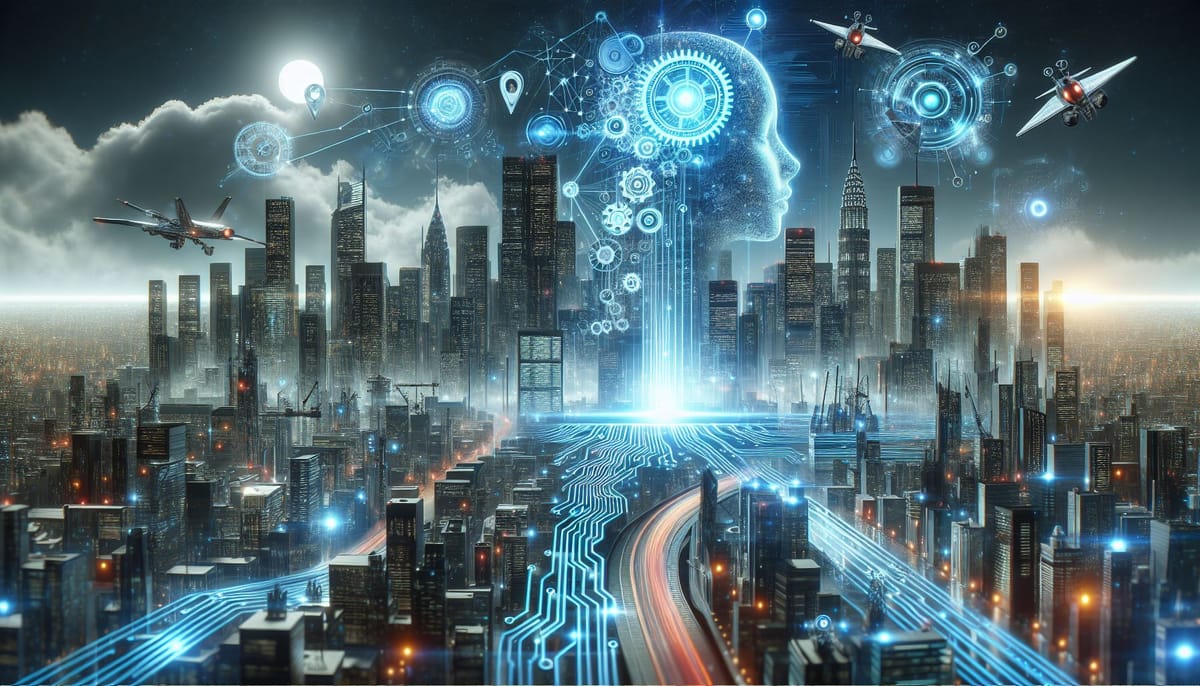The Rise of Artificial Intelligence: Transforming Industries and Shaping the Future

Artificial Intelligence (AI) has emerged as a transformative technology that is revolutionizing numerous industries and reshaping the way we live and work. With its ability to process vast amounts of data, learn from patterns, and make intelligent decisions, AI is enabling unprecedented advancements in various fields. In this article, we will explore the current state of AI, its applications across industries, its potential benefits, and the ethical considerations surrounding its development and deployment.
- Understanding Artificial Intelligence:
Artificial Intelligence refers to the development of computer systems that can perform tasks that typically require human intelligence. It encompasses various subsets, including machine learning, natural language processing, computer vision, and robotics. AI systems are designed to analyze data, recognize patterns, make predictions, and even interact with humans in a human-like manner. - Applications of AI:
AI is being applied across diverse sectors, transforming industries and improving efficiency. In healthcare, AI is being used for diagnosing diseases, drug discovery, and personalized medicine. In finance, AI algorithms are enhancing fraud detection, risk assessment, and algorithmic trading. AI-powered chatbots and virtual assistants are revolutionizing customer service and support. Other sectors benefiting from AI include manufacturing, transportation, agriculture, and cybersecurity. - Benefits of AI:
The widespread adoption of AI brings numerous benefits. AI systems can process and analyze vast amounts of data quickly, leading to more informed decision-making. Automation of repetitive tasks allows human workers to focus on more complex and creative endeavors. AI algorithms can identify patterns and trends that humans might miss, leading to improved predictions and insights. Moreover, AI has the potential to address societal challenges, such as climate change, by optimizing energy consumption and enabling smarter resource management. - Ethical Considerations:
As AI continues to advance, ethical considerations become increasingly important. Concerns include job displacement due to automation, biases in AI algorithms, data privacy, and security risks. Efforts are being made to ensure transparency, fairness, and accountability in AI systems. Regulations and guidelines are being developed to address these concerns and promote responsible AI development and deployment. - The Future of AI:
The future of AI holds much promise. Advancements in AI research, coupled with increased computing power, will likely lead to even more sophisticated AI systems. AI will continue to transform industries, improve efficiency, and create new opportunities. However, it is essential to ensure that AI is developed and used in a manner that benefits society while minimizing potential risks.
Artificial Intelligence is a game-changing technology that is reshaping industries and driving innovation across various sectors. Its applications are wide-ranging and hold the potential to solve complex problems and improve the quality of human life. However, careful consideration of ethical implications, transparency, and responsible development will be crucial to harness the full potential of AI while addressing societal concerns. As AI progresses, it is important to strike a balance between technological advancement and the well-being of humanity.